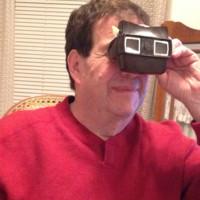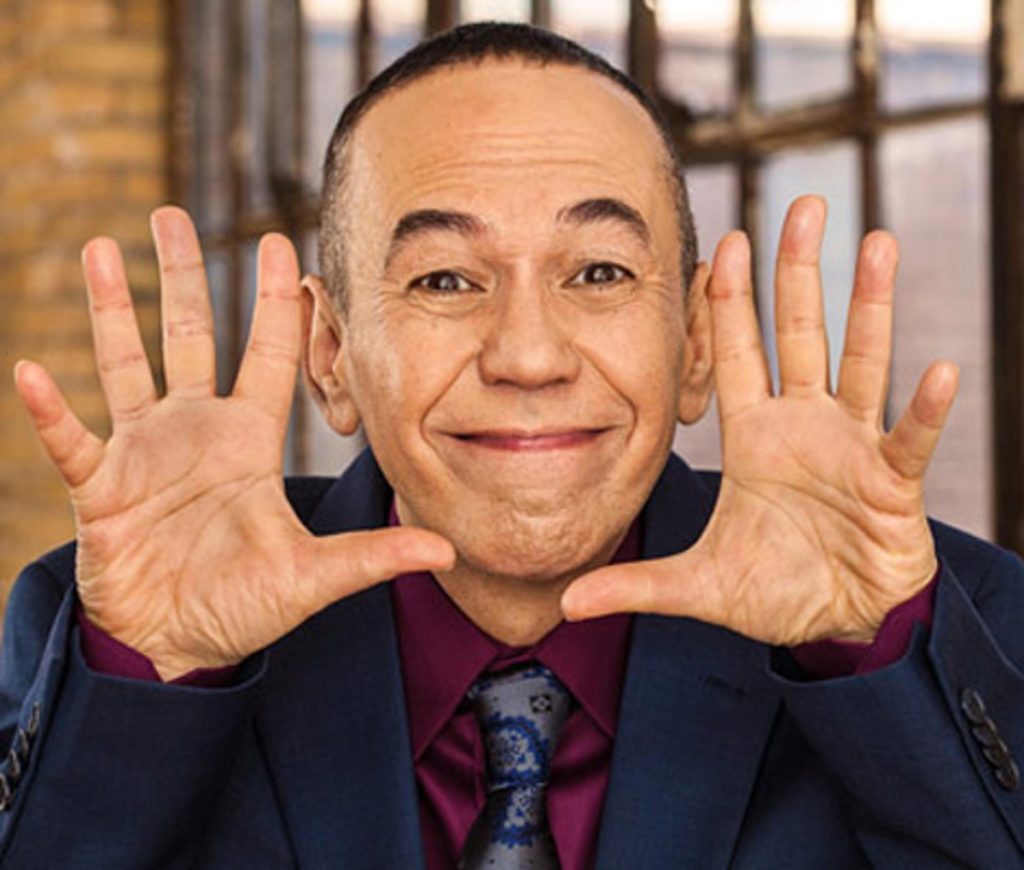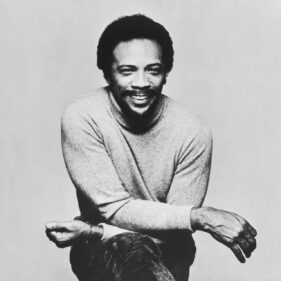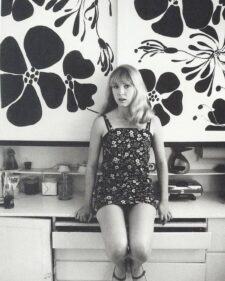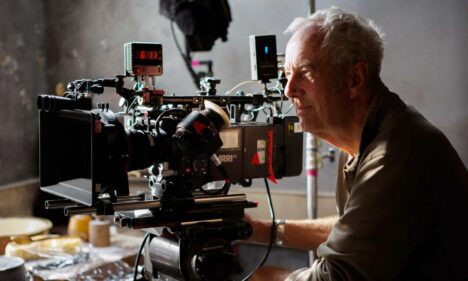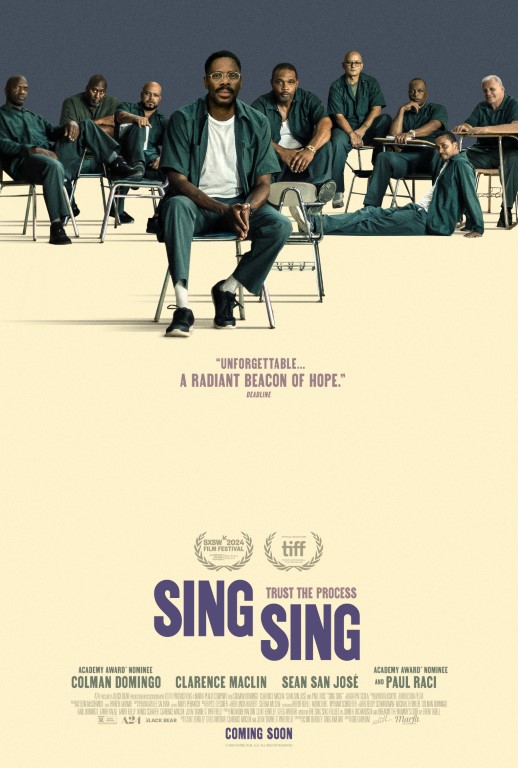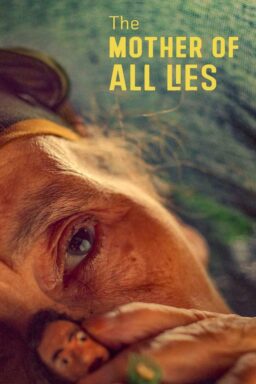At the funeral of director Ernst Lubitsch, Billy Wilder is reported to have said to William Wyler, "No more Ernst Lubitsch," to which Wyler replied, "Worse, no more Ernst Lubitsch pictures."
I feel much the same way about Gilbert Gottfried's passing on Tuesday. No more Gilbert Gottfried. Worse, no more Gilbert Gottfried jokes. Worse still (in keeping with the comedy rule of three), possibly no more Gilbert Gottfried's Amazing Colossal Podcast (GGACP), an essential archive of interviews with show business legends, old school nightclub entertainers, character actors, filmmakers, comedy creators, authors and musicians.
Gottfried's death was announced on Tuesday, April 12. The cause, as confirmed by his publicist Glenn Schwartz, was Recurrent Ventricular Tachycardia due to Myotonic Dystrophy type II, which is a rare form of muscular dystrophy. He was 67.
The first thing that comes to mind when we talk about Gottfried is his stage voice, a remarkable instrument that was described in various obituaries as "loud, annoying" (The New York Times), "shrill" (Variety), "over-the-top, exaggerated" (People). I prefer distinctive and iconic.
It was heard most memorably in Disney's animated classic, "Aladdin," in which Gottfried indelibly voiced Iago, the hench-parrot to villain Jafar. "We're never gonna get ahold of that stupid lamp!" he flies off the handle at one point. "Just forget it. Look at this; I'm so ticked off that I'm molting."
He was also the voice of the Aflac duck mascot until he was fired in 2011 after posting a series of tweets about the Japanese tsunami that took the lives of some 3,000 people. To Gottfried, there was no such thing as "too soon" when it comes to jokes. There was only, he once said, "not soon enough." During a Comedy Central Roast for Hugh Hefner, he infamously made a 9/11 joke just weeks after that epochal tragedy. "I have to catch a flight to California," he said. "I can't get a direct flight. They said they have to make a stop at the Empire State Building first."
Writing on CNN.com in 2012 in response to backlash against comedian Daniel Tosh over controversial jokes referencing rape that he made during one of his stand-up shows, Gottfried shared his philosophy about comedy: "If a comedian tells a joke that you find funny, you laugh. If he tells a joke you do not find funny, don't laugh. Or you could possibly go as far as groaning or rolling your eyes. Then you wait for his next joke; if that's funny, then you laugh. If it's not, you don't laugh—or at very worst, you can leave quietly."
One can only wonder, then, how Gilbert himself would have joked about his own death. It would be something all-in on tastelessness, but spot-on hilarious. Members of the Gilbert Gottfried Amazing Colossal Listener Society Facebook group had at it on Tuesday, riffing on Gottfried-esque comments that referenced the comedian's own movie obsessions, such as Papillon Soo Soo, the "Full Metal Jacket" actress best known for her line, "Me so horny, me love you long time," a film referenced often on the podcast.
One listener posted, "Me so mourny. Me mourn you long time."
But don't confuse the Gilbert Gottfried of his aptly-titled "Dirty Jokes" album and DVD, or his definitive telling of the epically profane "The Aristocrats" joke, with the private Gilbert Gottfried. In a touching Facebook post, singer John Davidson, a recent guest on the GGACP, related how he initially turned down requests to guest: "I said I admire him so much. I think he is fall down funny. But I said he scares me, his comedy is so harsh it's like a slap in the face or a punch in the gut. Year and a half later … I said OK. Well, he was just the sweetest guy, and so well prepared and he helped me score. Behind his comedy, of course, is this incredible warmth."
This can be seen in two acclaimed documentaries. One of them is Neil Berkeley's "Gilbert" (2017), a revelatory look at the private Gilbert, affectionate husband to Dara Kravitz and loving father to his children Lily and Max. The other is the Oscar nominated "Life, Animated" (2016), in which Gilbert is seen interacting with Owen Suskind, an autistic young man whose father discovers he can communicate with his son best through Disney animated characters.
In one memorable scene, Gottfried surprises Owen during an "Aladdin" script reading. "That's all I need," Gottfried jokes. "Him doing the lines better and working cheaper than I do."
Gottfried began his stand up career at the age of 15. He started out as an impressionist, but none of that hackneyed, "I think it would go something like this" stuff. His impressions were often what my wife calls 10 percenters, meaning obscure figures only a portion of the audience might get. Character actor John McGiver, for instance.
Or he would go high concept: Jackie Gleason as Rick in "Casablanca" ("I know that you know that I know that you're getting on that plane"), the interchangeable voices of Tony Curtis and Gavin McLeod talking to each other over donuts and coffee, and, a favorite, a soft-spoken Old Groucho ("I remember years ago, we would drink coffee. Coffee was something that was hot, and you put in a cup and you drank it.")
Perhaps the quintessential surreal Gilbert Gottfried joke concerns a walk in the country when Gottfried has a close encounter with greenish-grey alien creatures: "Finally one of them spoke and said, ‘Ben Gazzara; he's a good actor, why can't he get a series?" Or check out this four-minute classic in which Gottfried finds himself in the Land of the Three-Named People.
Movies and television used him in small, but impactful spots. He stole his scene with Eddie Murphy in "Beverly Hills Cop II." "Sharknado 4," "Sharknado 5," and "The Last Sharknado" are horrible, but think how much worse they would be without the scant minutes Gottfried appeared as reporter Rand McDonald.
Better uses of his precious voice were his turns as the voice of Jared Kushner on "Last Week Tonight with John Oliver," the College Humor faux commercial for Audible Books' production of "50 Shades of Grey" as screeched by Gottfried, as well as his utility work on "The Late Show with Stephen Colbert."
His one season on "Saturday Night Live" in 1980-81 was a bust (he, along with his ill-fated cast members, was fired). His cast had replaced the show's original ensemble. That was a mistake. "You don't want to be the replacement," he said. "You want to be the replacement of the replacement."
Vehicles specifically tailored to him were not forthcoming. Gottfried had starred in a singularly awful television pilot, "Norman's Corner," in which he portrayed a newspaper stand owner. A pre-"Seinfeld" Larry David wrote it. When David's name was brought to the attention of NBC executives considering "Seinfeld," one supposedly said, "Isn't Larry David the guy who wrote that piece of shit pilot with Gilbert Gottfried?"
Gottfried loved telling this story about how he almost killed "Seinfeld." It is one of those possibly apocryphal anecdotes one prays is true.
But arguably Gottfried's greatest and most lasting contribution to popular culture are the 400+ episodes of the GGACP, which he started in 2014 with co-host Frank Santopadre. Legends and old school entertainers with nothing to plug and left behind by the current crop of late-night TV talk shows they once frequented, sit for more than an hour to share irresistible stories.
Here's just a sampling: Barbara Feldon, Larry Storch, Catwomen Lee Meriwether and Julie Newmar, Bill Persky, who co-wrote some of "The Dick Van Dyke Show's" greatest episodes, Van Dyke himself, Janet Ann Gallow from "The Ghost of Frankenstein" (Gottfried was obsessive about Universal's monster-verse), ventriloquist Willie Tyler and Lester, Steve Stoliar, who wrote a book, Raised Eyebrows (soon to be a major motion picture) about his years as Groucho Marx's archivist, Frank Ferrante, whose film of his one-man stage show as Groucho Marx recently premiered on PBS (he and Gottfried memorably performed dueling Grouchos), Tony Sandler, of the singing duo Sandler & Young, Lee Grant and Mario Cantone, whose annual Christmas Show appearances were the podcast's equivalent to Very Special Episodes.
"We call it our valentine to show business," Santopadre told Vanity Fair in 2016. "These people gave me so much pleasure as a kid and throughout my life, really, that it gives me pleasure to give them a new forum. It's a chance to say thanks, and to help introduce new generations to their body of work."
It has been a particularly cruel year when it comes to comedians who have been taken from us: Bob Saget, Louis Anderson, and now Gilbert. Eerily, the three were depicted in a photo that went viral following Anderson's death.
It is appropriate to end on the title of one of Jerry Lewis' best films (the acknowledged comedy genius but famously prickly personality was referenced constantly on the podcast, leading Gilbert to inevitably utter six words that were immortalized on podcast merch: "He was always nice to me").
Gottfried had funny bones. There are few comedians who made me laugh harder. Gottfried, in his CNN op-ed, quoted George Carlin who once said, "It's the duty of a comedian to find out where the line is drawn and then step over it."
"I don't want to compare myself to George Carlin," he wrote, "because when I first heard his quote, I laughed and said, ‘He said dooty.' I guess he was more intellectual than me."
